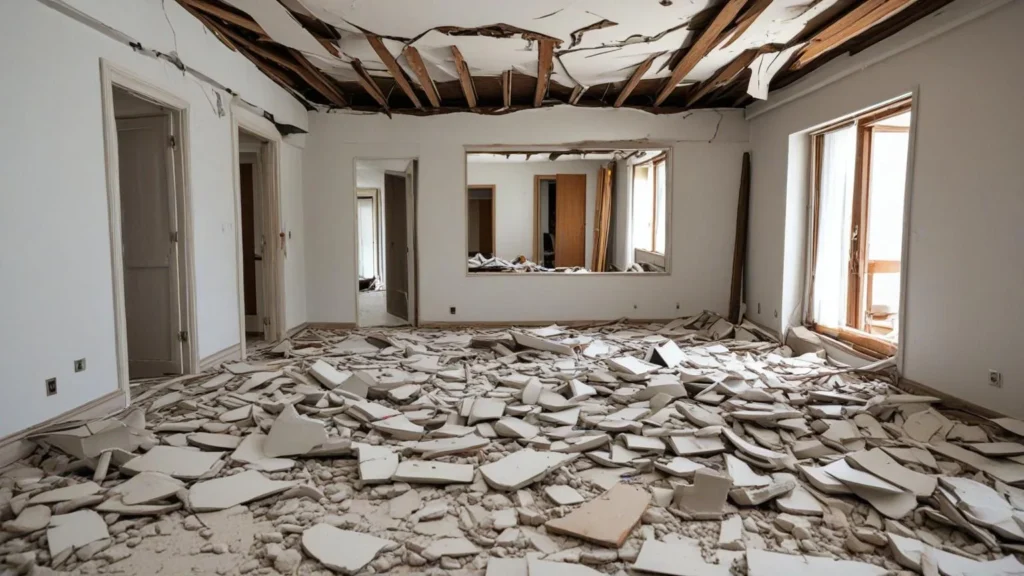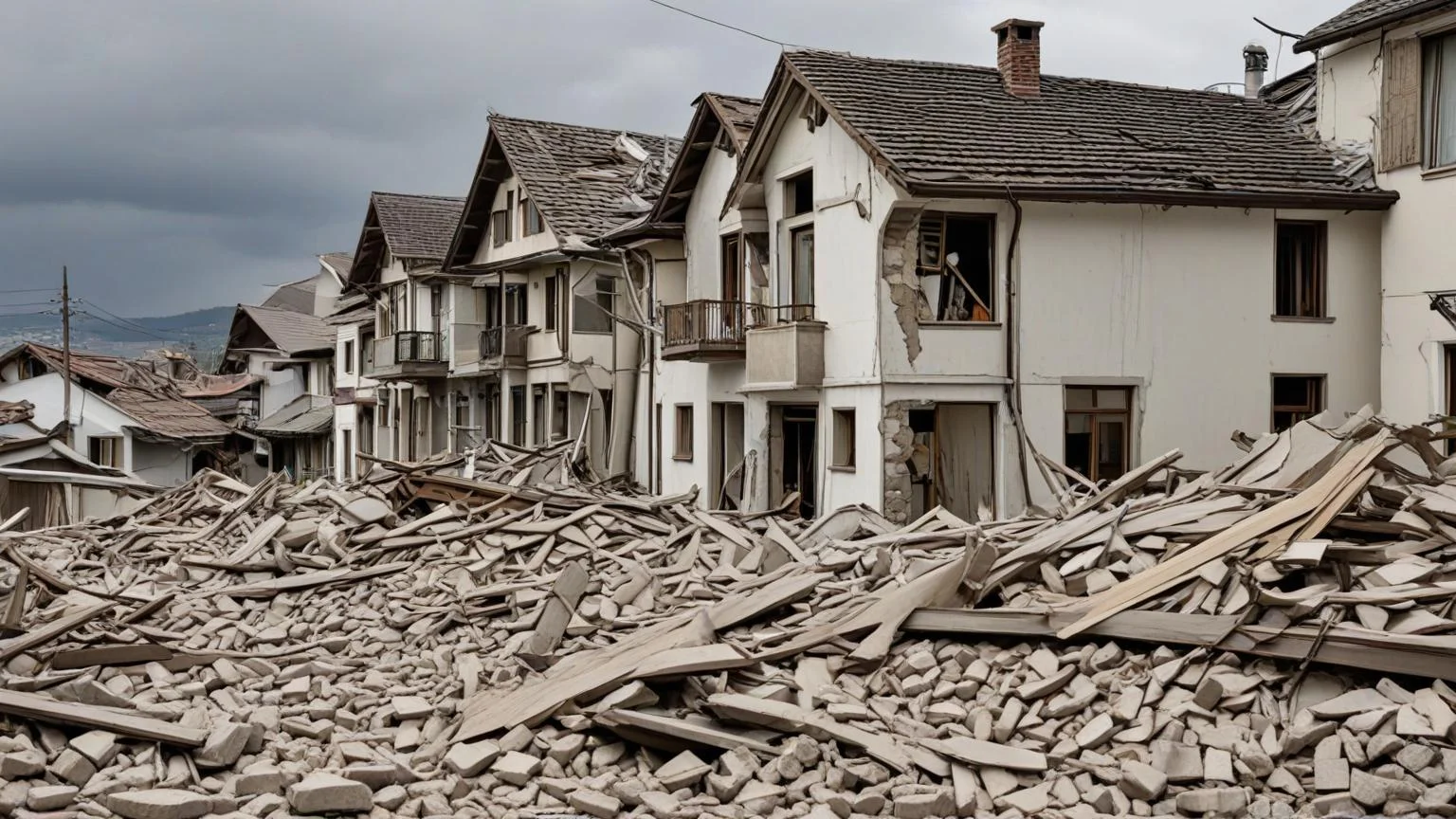Living in an earthquake-prone area can be stressful, but having the right insurance can offer peace of mind. Earthquake insurance is a specialized coverage designed to protect homeowners from the financial devastation that can result from seismic events. In this comprehensive guide, we’ll explore the benefits of earthquake insurance, why it is essential for homeowners, and answer key questions to help you understand this crucial coverage.
Why Should Earthquake Insurance Be Purchased by a Homeowner?
Protection Against Financial Loss
Earthquakes can cause significant damage to homes, leading to costly repairs or even total reconstruction. Without earthquake insurance, homeowners must bear these expenses out of pocket. Earthquake insurance provides a financial safety net, ensuring you have the funds needed to rebuild or repair your home after a seismic event.
Example:
- A major earthquake causes severe structural damage to your home, leading to repair costs of $200,000. With earthquake insurance, these costs are covered, saving you from a substantial financial burden.
Peace of Mind
Knowing you have coverage in place for earthquake-related damages can offer peace of mind. This assurance allows you to focus on your family’s safety and recovery in the aftermath of an earthquake rather than worrying about financial ruin.
Example:
- After an earthquake, you can rest easier knowing that your insurance will cover the costs of temporary housing and repairs, allowing you to concentrate on your family’s well-being.
Compliance with Mortgage Requirements
In certain high-risk areas, mortgage lenders may require homeowners to carry earthquake insurance. Having this coverage ensures compliance with lender requirements and protects your investment in your home.
Example:
- Your mortgage lender requires earthquake insurance as a condition for approving your loan. By obtaining the necessary coverage, you secure your mortgage and protect your property investment.
Protection for Personal Property
Earthquake insurance often includes coverage for personal belongings damaged during a seismic event. This protection extends to items like furniture, electronics, and clothing, ensuring you can replace your possessions if they are damaged or destroyed.
Example:
- An earthquake damages your home, destroying your furniture and electronics. Earthquake insurance helps you replace these items, reducing the financial impact of the disaster.
What Happens if You Don’t Have Earthquake Insurance?

High Out-of-Pocket Costs
Without earthquake insurance, homeowners must cover the full cost of repairs or rebuilding after an earthquake. These expenses can be overwhelming, particularly if your home suffers significant damage.
Example:
- A severe earthquake causes extensive damage to your home, with repair costs totaling $150,000. Without insurance, you must pay these costs yourself, potentially leading to financial hardship.
Limited Assistance from Homeowners Insurance
Standard homeowners insurance policies typically do not cover earthquake damage. This means that without a specific earthquake endorsement or separate earthquake insurance policy, you may have little to no coverage for earthquake-related losses.
Example:
- Your standard homeowners policy covers fire and theft but excludes earthquake damage. After an earthquake, you discover that you have no coverage for the repairs needed to restore your home.
Potential Loss of Home
In extreme cases, the inability to afford necessary repairs can result in the loss of your home. Without insurance, you may face the difficult decision of abandoning your property if the cost of rebuilding is beyond your financial means.
Example:
- An earthquake renders your home uninhabitable, and the cost to rebuild is more than you can afford. Without insurance, you may be forced to walk away from your home, losing your investment and leaving you without a place to live.
Can You Claim Earthquake Insurance on Your Taxes?
Personal Use Homes
For most homeowners, earthquake insurance premiums are not tax-deductible. The IRS generally considers these premiums to be personal expenses, which are not eligible for tax deductions.
Example:
- You pay $1,200 annually for earthquake insurance on your primary residence. Unfortunately, you cannot deduct this expense on your federal tax return.
Rental Properties
If you own rental properties, you may be able to deduct earthquake insurance premiums as a rental expense. These deductions can be claimed on Schedule E of your federal tax return, potentially reducing your taxable income.
Example:
- You own a rental property and pay $800 annually for earthquake insurance. You can deduct this expense as a rental property expense, lowering your overall tax liability.
Business Properties
For properties used for business purposes, earthquake insurance premiums can be considered a business expense and may be deductible. This deduction can be claimed on your business tax return, providing a financial benefit for business owners.
Example:
- You operate a business from a commercial property and pay $1,500 annually for earthquake insurance. This expense can be deducted as a business expense, reducing your business’s taxable income.
What Does the Earthquake Endorsement on a Homeowners Policy Cover?

Dwelling Coverage
An earthquake endorsement typically covers damage to the structure of your home, including the foundation, walls, and roof. This coverage is crucial for repairing or rebuilding your home after an earthquake.
Example:
- An earthquake causes cracks in your home’s foundation and walls. The dwelling coverage provided by your earthquake endorsement pays for the necessary repairs.
Personal Property Coverage
This endorsement extends to personal belongings within your home, such as furniture, electronics, and clothing. If these items are damaged during an earthquake, the endorsement helps cover the cost of replacement or repair.
Example:
- An earthquake damages your living room furniture and kitchen appliances. The personal property coverage in your endorsement helps you replace these items.
Additional Living Expenses
If your home is uninhabitable due to earthquake damage, the endorsement can cover additional living expenses, such as temporary housing, food, and other necessary costs until you can return to your home.
Example:
- Your home is severely damaged, and you need to stay in a hotel for several months while repairs are made. The additional living expenses coverage pays for your hotel stay and related costs.
Loss of Use
This coverage helps pay for the costs associated with finding temporary housing if your home is too damaged to live in. It ensures that you have a place to stay while your home is being repaired.
Example:
- An earthquake makes your home uninhabitable, and you need to rent an apartment for six months. The loss of use coverage pays for your rental costs during this period.
Conclusion
Earthquake insurance is a critical consideration for homeowners, particularly those living in areas prone to seismic activity. By providing financial protection, peace of mind, and compliance with mortgage requirements, earthquake insurance ensures that you can recover and rebuild after a disaster. Without this coverage, homeowners face significant financial risks, limited assistance from standard policies, and the potential loss of their homes.
Understanding the benefits and coverage options of earthquake insurance allows homeowners to make informed decisions about their insurance needs. Whether it’s protecting personal property, covering additional living expenses, or ensuring compliance with mortgage requirements, earthquake insurance offers invaluable support in the aftermath of an earthquake.
Summary Table of Pros and Cons
| Pros of Earthquake Insurance | Cons of Earthquake Insurance |
|---|---|
| Provides coverage for earthquake damage | Premiums can be costly |
| Offers peace of mind for homeowners | May not cover all types of damage |
| Can be required by mortgage lenders | Deductibles can be high |
| Protects personal property and covers additional living expenses | Generally not tax-deductible for personal use |
In conclusion, earthquake insurance is a smart investment for homeowners looking to protect their homes and finances from the unpredictable and potentially devastating effects of earthquakes. By understanding how earthquake insurance works and the benefits it provides, you can ensure that you have the right coverage for your home and family.

